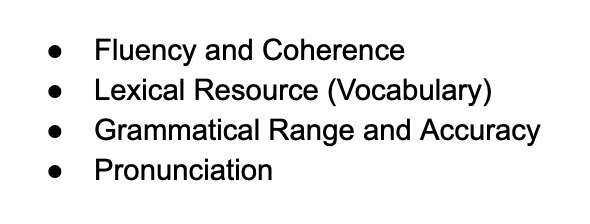IELTS Speaking Part 1 – Techniques and Samples

In IELTS speaking part 1, you will be asked 11 – 12 questions. These questions will be about you and you have to give short answers with 1 or 2 sentences. This part of the speaking test lasts about 4 – 5 minutes.
Unlike IELTS Speaking Part 3, you will need to give short answers instead of long ones.
Don’ts in the IELTS Speaking Part
- Don’t try to memorise answers, and then try to answer questions from these memorised answers. By doing so, you are more likely to get a low score.
- Looking or not at the examiner’s eyes will never change your score, so try to focus on your speaking and nothing else.
- You should not give long answers, try to keep your answers short with the maximum of one or two sentences.
- Don’t use irrelevant vocabulary or idioms for showing the examiner that you know idioms. Idioms and vocabulary should be relevant to the question.
Do’s in the IELTS Speaking Part 1
- Be confident and don’t hesitate when answering the questions. These questions are about you, so you know them and can give straightforward answers.
- Practice before attending the exam by learning techniques on how to answer the questions. In a moment, I will show you effective techniques with examples.
- Understand how the speaking score is given and what to expect in this part, so that you won’t have any surprises.
- Try to use idioms and a wide range of vocabulary appropriately. The vocabulary should be related to the question.
- Always speak with the contracted format.

Part 1 is an interview and you should aim for 2/ 3 sentences for an answer -
Here is an example question, you might have to answer:
q. What type of music do you most like to listen to?
and here is an answer: I tend to prefer electronic music because/ as / due to the fact that it gives me a sense of calm and it transports me to another world.
Here I just give an answer the question and use a connecting word/ phrase to say why = what and why. In your mind, always have the word 'because' as you are expected to say WHY 🙂
How would you answer the following question?
Have you always liked the same type of music?
How the IELTS Speaking Test is Assessed
You will get your IELTS speaking score on how you performed on four criteria, so-called band descriptors.

To learn more about the band descriptors, please check out this link.
Questions Types with Techniques
There are various question types for the IELTS Speaking Part 1. No one can number all of them, but I highlighted some common question types that you can possibly encounter. Let's look at them and the ways they can be answered.
Questions about liking something
To answer these types of questions, you can use the structures below:
I usually enjoy verb + ing object1, but I also tend to verb object2 from time to time.
I'm keen on verb + ing object1, but I also tend to enjoy verb + ing object2 from time to time.
Let’s try these structures on some real examples.
Question from Cambridge 4 Test 2
What kind of food do you like to eat?
You can answer this question with the structures by replacing the verb with eating. The object one could be replaced with Indian food, and the object two could be replaced with Lebanese food.
The answers would be:
I usually enjoy eating Indian food, but I also tend to eat Lebanese food from time to time.
I’m keen on eating Indian food, but I also tend to enjoy eating Lebanese food from time to time.
Question from Cambridge 10 Test 2
What type of music do you like to listen to?
Again, you can replace the verb with listening to, object one with rock music and object two with pop music.
I usually enjoy listening to rock music, but I also tend to listen to pop music.
I’m keen on listening to rock music, but I also tend to enjoy listening to pop music.
Questions About Frequency
I'd say once in a blue moon. I'm often busy with my studies/work, so I don't have enough time to verb + object.
Take a look at the structure below and use it to answer questions about frequency.
Let's try this structure on a real example.
Question from Cambridge 8 Test 4
How often do you watch television?
You have to use the structure and replace the verb with watching and the object with TV. It would be.
I'd say once in a blue moon. I'm often busy with my studies, so I don't have time to watch TV.
In this example, we used the idiom "once in a blue moon" appropriately. This is the right usage of an idiom.
How to Study?
- Don’t only practice sample tests but also improve your grammar and vocabulary. They count for 50% of the speaking test.
- Record and transcribe yourself while doing sample tests so that you can analyse your mistakes and improve them.
- Have someone to give you regular feedback so that you can know in which areas you have to work. For example, you can book lessons with an IELTS teacher to help you with your speaking skills. Yet, keep in mind, that teachers at IELTS PROFI have a deep understanding of the IELTS test and can help you with all the skills.
